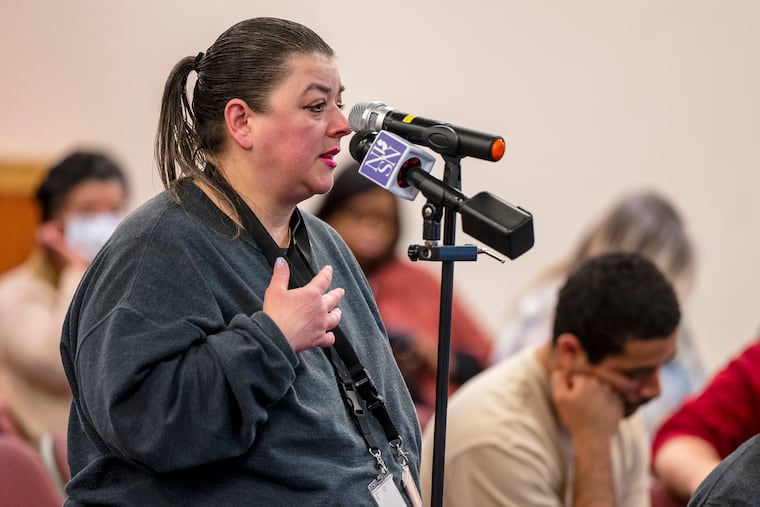NJ Transit says it needs $917 million, but riders say poor service doesn’t warrant paying more per ride
N.J Gov. Phil Murphy has also proposed a corporate tax hike but says a rate increase would still be necessary to save the ailing transit system.

NJ Transit wants bus and train riders to cough up more fare money to help rescue the agency from looming budget deficits.
A plan to increase fares 15% on July 1 and then by 3% each following year got its first public airing Monday at the Cherry Hill Library before about 45 people, the first of 10 hearings required by law before the NJ Transit board can adopt the new fare rates.
The agency says it faces a $118 million budget deficit in 2025 and a $917 million shortfall in 2026, as its ridership has not returned to pre-pandemic levels and the last of emergency federal operating subsidies are spent.
South Jersey riders who spoke against the fare proposal, introduced in January, said they depend on the agency’s buses and trains and cannot afford an extra cost. Others noted that frequent service gaps, canceled rides, and mechanical breakdowns make them less sympathetic to paying higher fares.
James Thornton, of Salem County, said he commutes to and from work in Philadelphia by catching NJ Transit’s Atlantic City Line train. Sometimes, he said, the last train back from 30th Street Station is canceled, and a substitute bus doesn’t show.
“It leaves riders with the impression NJ Transit just doesn’t care,” Thornton said.
Gov. Murphy’s plan for aid
Separate from the fare-hike plan, New Jersey Gov. Phil Murphy, a Democrat, proposed a 2.5% surcharge on top of the state’s base corporate income tax of 9% on companies with profits of $10 million or more.
The tax, he said in his budget address to a joint session of the Legislature last month, would provide a “dedicated funding stream” for the transit agency “at no additional cost to our working families.”
Murphy called it a “corporate transit fee.” Administration officials estimated that the surcharge would apply to 600 to 700 companies, generating $818 million a year by mid-2026.
Even if enacted, that would not be enough to avoid a fare increase, Murphy said.
NJ Transit has never had a guaranteed amount of state funding, relying instead on the yearly decisions of the Legislature and the governor in Trenton.
“This is exactly the type of thinking needed to get NJ Transit back on track, and it’s long past time that big corporations pay for the infrastructure that helps them generate record-breaking profits,” said Alex Ambrose, policy analyst for New Jersey Policy Perspective, a left-leaning think tank.
But the fare increase was the immediate topic in Cherry Hill.
Elizabeth Zerambo, of Audubon, spends $200 a month on NJ Transit bus passes and said riding on buses often feels unsafe because of the number of people who board without paying their fare.
“The bus drivers have to deal with the wrath,” and sometimes pull off the route to a local police station, she said. She added she rarely, if ever sees transit police officers, and NJ Transit should step up security.
“I don’t know if you guys in suits ever go on the buses,” Zerambo said.
Workers’ perspective
Union locomotive engineers who work on NJ Transit’s extensive commuter rail system distributed leaflets and spoke with people at the hearing about their contract woes. They say the railroad has refused to make a new offer while they are locked in mandatory mediation required by the federal Railway Labor Act.
The law has series of benchmarks that must be met before railroad workers can strike, up to an emergency board appointed by the president to draw up a proposed contract. NJ Transit members of the Brotherhood of Locomotive Engineers and Trainmen are continuing to work under terms of a 2019 agreement while the process continues.
“While NJ Transit management is spending half a billion dollars on a new headquarters building, NJT locomotive engineers have not seen a raise since 2019,” said Tom Haas, general chairman of BLET union representing them. “We have been working through the pandemic and near-record inflation without a single increase in our wages.”